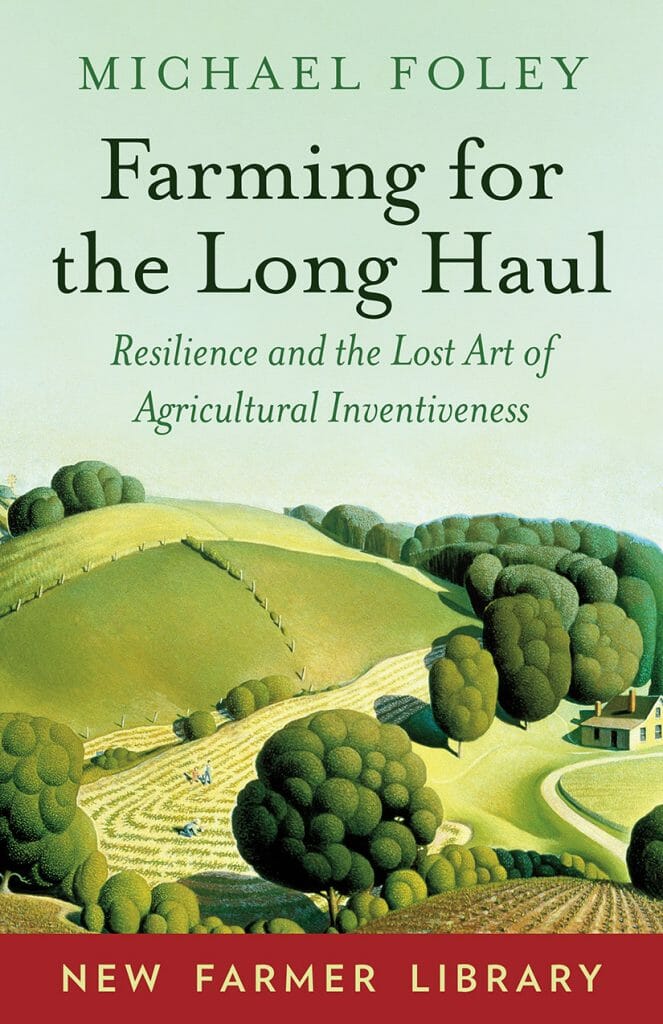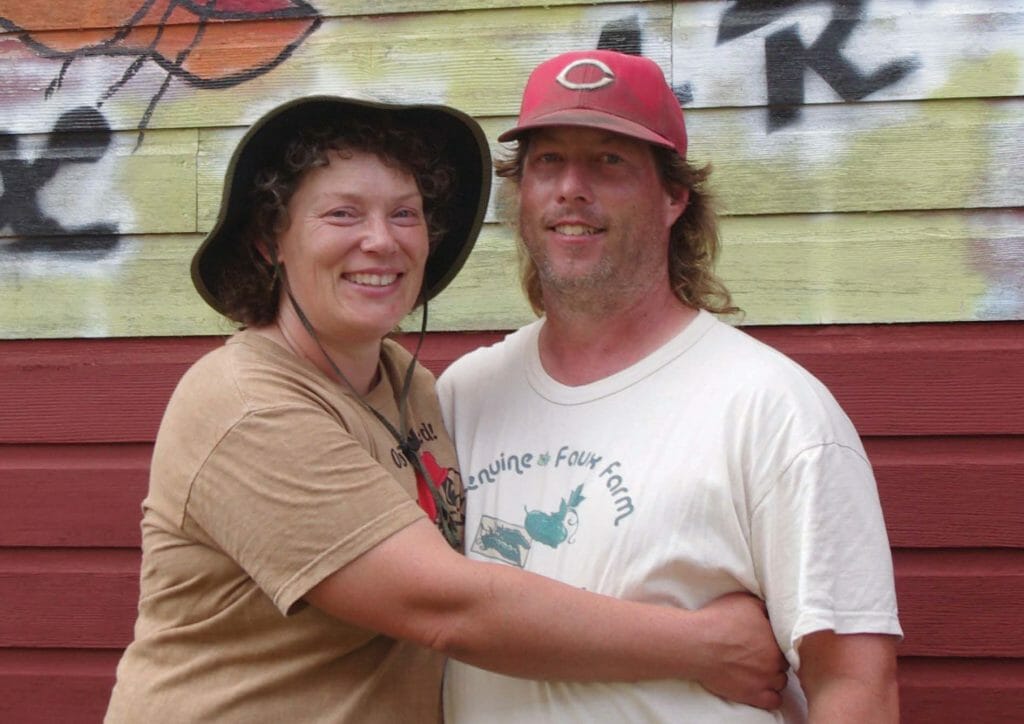Review of: “Farming for the Long Haul: Resilience and the Lost Art of Agricultural Inventiveness”
Written by Rob Faux
When I was given the chance to review Michael Foley’s book, “Farming for the Long Haul: Resilience and the Lost Art of Agricultural Inventiveness,” only one word in the title was needed to get my attention: “resilience.”
 Tammy and I have been operating the Genuine Faux Farm since 2004. Our farm has grown over the years into what I think is a fairly successful operation that has shown some adaptability to adverse conditions. Nonetheless, recent issues with weather, chemical misapplications and a declining market have made things difficult enough that we are carefully considering our options. Michael Foley’s book, “Farming for the Long Haul,” will probably appeal to those who appreciate Wendell Berry, as it is clear the author is a disciple of Berry’s writings. Foley writes from the perspective of one who has an academic background and years dedicated to operating a small, diversified farm in California. Given these similarities to my own experiences, it was likely I was going to have some strong reactions to the content. I was not wrong.
Tammy and I have been operating the Genuine Faux Farm since 2004. Our farm has grown over the years into what I think is a fairly successful operation that has shown some adaptability to adverse conditions. Nonetheless, recent issues with weather, chemical misapplications and a declining market have made things difficult enough that we are carefully considering our options. Michael Foley’s book, “Farming for the Long Haul,” will probably appeal to those who appreciate Wendell Berry, as it is clear the author is a disciple of Berry’s writings. Foley writes from the perspective of one who has an academic background and years dedicated to operating a small, diversified farm in California. Given these similarities to my own experiences, it was likely I was going to have some strong reactions to the content. I was not wrong.
One of the underlying theses of the book is that farming is not meant to be profitable in the traditional sense. Foley draws a line between economic sustainability and profitability by pointing out that much of the returns for a farm come in the form of subsistence and personal satisfaction. He argues that the current agricultural systems work against the profitability of farming, and that successful systems in the past did not focus on the profit margin. Instead, successful systems and farms have always found a way to “care for themselves first” and worry about outside reward second. Farms are in a unique position to provide staples like food, shelter and heat, so it is important to maintain these resources and use them to supply the farm first. This is a good argument to avoid selling the last 50 pounds of potatoes you need to get yourself through the winter!
Another part of farm self-care is recognizing that we farm because we actually love what we do and that farming is an avocation, rather than an occupation. Foley gives a nod to this theme early and then returns to it in more detail later in the book. This may be the aspect of the book that resonates with every farmer, regardless of farm type. Our resiliency, in the end, will come from our love of the land, our farms, our families and the local communities that connect to our farms. It is from these things that we draw strength when things go poorly, and it is for these things that we learn and adapt so we can make the best choices as we farm.
I do have some issues with this book. As an academic, I was initially happy to see the author citing numerous sources. But most of the citations were of other authors Foley happens to agree with. I did not notice many citations of viable studies or resources that allow me to verify facts or statements he puts forth. Since this book relies heavily on a historical component, I might expect more in the way of primary sources. Similarly, Foley makes several claims about future climate and energy resources. While facts might bear him out, he doesn’t actually point us to respectable resources that give more credence to the argument. Though I might agree on some level with the analysis, it is exactly this sort of argument style that will not convince those with an opposing viewpoint to reconsider their position.
The book references many diverse farming methods from different cultures and points in history. This is one of the more entertaining parts of this work and exploring these helped me to consider additional things we might do on our own farm. But I will admit I was annoyed that Foley makes these approaches sound problem-free. You might be tempted to believe every peasant had a great life. This tact reminded me of some of the bad commercials that show individuals frowning and struggling as they try to do something, only to smile as they use the advertised product to accomplish the same “awful” task. This book, in much the same way, works hard to show how bad the status quo is while making the ideas Foley favors seem a bit too easy. He falls into the trap of demonizing certain professions and all who happen to perform them.
In the end, I think Foley’s work has actually helped me take a critical look at my own views regarding my farm. In fact, Foley’s values closely align with those of Practical Farmers of Iowa. He praises the concept of farmers sharing knowledge and facilitating the growth of skills in new farmers. He provides an interesting section on the idea of land access that could make us all consider some different solutions in that area. He makes note of the long-standing tradition of the farmer as researcher, working to find the best ways to achieve success on his or her farm.
The biggest takeaway of the book for Genuine Faux Farm is that I have allowed myself to move away from properly valuing some of the benefits we receive by farming. The simplest thing to measure would be the good food we can place on our table throughout the year; we just need to let ourselves do that very thing. If it is important to us that we place monetary values on all our benefits, then we should more carefully consider the services our farm provides for us that write out as expenses for the business. Perhaps most importantly, we need to remember to recognize the value of the intangibles that stem from our farming. As long as the farm provides well enough for our subsistence and we continue to appreciate the life we live, we will be fine – even if the profits are not what we want. On the other hand, if that day comes where we no longer receive what we need to be happy with our lives on the farm, we should feel free to move on – as long as we give full weight to all factors, including those that fall outside what shows on our bottom line.
Rob Faux and his wife, Tammy, own and operate Genuine Faux Farm near Tripoli, where they raise vegetables, chickens and turkeys for local customers.

